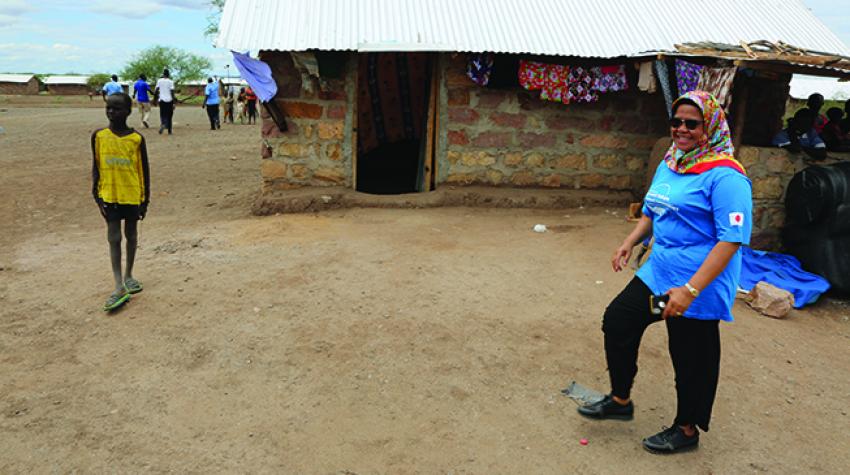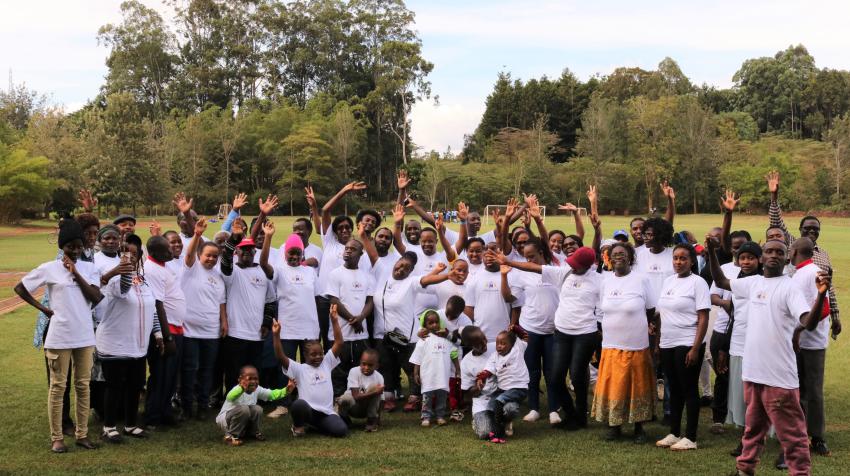August 2018, No. 2 Vol. LV, 2030 Agenda
The world is urbanizing at an unprecedented rate, with the migration of millions of individuals to cities and urban centres bringing enormous pressure to bear on inhabitants, politicians, city managers, urban planners and policymakers. At the same time, cities function as beacons of innovation and opportunity that hold the transformative power of positive change and inclusion.
Before this, the challenges are numerous and include providing basic services—such as water and sanitation, particularly for marginalized groups living at the peripheries of cities and other urban agglomerations—and managing uncontrolled urban sprawl. Local leaders also have a responsibility to create equal opportunities for residents to earn livelihoods, be economically productive, and engage in social and leisure activities in a sustainable and secure environment for all, with no one and no place left behind. The challenge of urbanization is further exacerbated by previously rural human settlements that are rapidly transforming into urban centres and small towns, subsequently growing into cities. In 2014, 54 per cent of the world’s population was classified as urban. The proportion of the population living in urban areas is projected to reach 60.4 per cent by 2030. As of 2018, an estimated 548 cities have populations of more than 1 million people, and this is expected to increase to 706 cities in 2030.
In 2014, 30 per cent of the urban population in developing countries lived in slums, and countless cities across the world experienced the unplanned growth of their informal structures, housing low-income and poor residents. This gives rise to urban sprawl beyond the administrative boundaries of most cities, placing basic services and decent employment opportunities out of reach for most slum inhabitants. Helping cities and other human settlements to become liveable and sustainable modern habitats is the global mandate of UN-Habitat. With a presence in over 70 countries, the agency works with national and local governments in achieving Sustainable Development Goal (SDG) 11, to “make cities and human settlements inclusive, safe, resilient and sustainable.” In addition, UN-Habitat supports the achievement of other SDGs in urban areas. The road map for doing so, the New Urban Agenda—UN-Habitat’s framework for the realization of the transformative role of cities in sustainable development—was adopted at the Habitat III Conference in Quito, Ecuador, in 2016.
Critical factors for sustainable urban and human settlements development in the New Urban Agenda include multisectoral urban planning; local financing; access to safe and affordable housing; provision of adequate basic services; investment in affordable and low-emission public transport networks; and participatory and inclusive approaches to planning, implementation and monitoring in order to ensure local ownership and long-term sustainability.
Operationally, UN-Habitat works with a broad range of partners to design, develop and implement innovative, affordable and replicable solutions to challenges within each of the critical dimensions of sustainable urban development. Lessons learned and best practices emerging from operations strengthen the agency’s normative work. This includes advice to policymakers, city leaders and development financing institutions.
Long-standing partnerships with universities and research institutes have enabled UN-Habitat to consistently produce and share authoritative work in the field of sustainable urban and human settlements development, earning it recognition as a global leader in knowledge- and capacity-building.
Clean water and sanitation is a high priority for people in cities. By developing strategic partnerships and leveraging public and private investments, UN-Habitat has provided over 2 million people in Africa, Asia and Latin America with improved and sustainable access to both services.
UN-Habitat’s innovative Participatory Slum Upgrading Programme has improved the quality of life for 2 million slum dwellers across the world, with interventions involving communities in project design, implementation and monitoring to enhance local capacity and livelihoods, and ensure built-in sustainability through the empowerment of the people.
Working with partner cities, the Safer Cities Programme has developed 40 public spaces in 12 countries over the last two years, enabling over 500,000 people to enjoy easier movement and safer access to recreational facilities. Land tenure security is an important aspect of sustainable urban and human settlements development. Recently the agency has been instrumental in establishing mechanisms for the resolution of land-related conflicts in northern Iraq.
Generating adequate revenue to finance sustainable social programmes is another key challenge for many local governments. UN-Habitat interventions in Somalia, for instance, have demonstrated that land- and property-based taxation is a viable source of stable revenue for local authorities.
UN-Habitat also works with local governments to improve their resilience and capacity to absorb man-made or natural disasters. It supports the United Nations Member States’ recovery and rehabilitation efforts in post-conflict situations, as is the case in Afghanistan, Colombia, the Democratic Republic of the Congo, Iraq, Lebanon, Somalia, Sri Lanka and Syria. Over 1 million people—including refugees, internally displaced people, returnees and host communities—have benefited from improved shelter, service infrastructure upgrading and secure land tenure rights.
A central pillar in all UN-Habitat initiatives is a bottom-up approach that emphasizes citizens’ participation and involvement of all interest groups, ranging from communities to experts in the design and implementation of programmes.
Deepening inequality, spatial segregation and social exclusion bring challenges to peoples’ lives in most cities and human settlements. The disadvantages concentrate on the most marginalized populations. UN-Habitat places emphasis on human rights, gender, youth and climate change impacts in all its work, in pursuit of the 2030 Agenda goal of leaving no one behind. For sustainable urban and human settlements development to take root, the needs of the previously marginalized or excluded groups must be properly taken into account.
All SDGs are mutually reinforcing, and it is not possible to progress in one without the others. For this reason, cooperation and collaboration with other United Nations funds, agencies and programmes are critical for UN-Habitat. Through tackling the environment, education and gender equality—to name just a few issues—together we can bring about inclusive and sustainable urban and human settlements development.
The UN Chronicle is not an official record. It is privileged to host senior United Nations officials as well as distinguished contributors from outside the United Nations system whose views are not necessarily those of the United Nations. Similarly, the boundaries and names shown, and the designations used, in maps or articles do not necessarily imply endorsement or acceptance by the United Nations.




